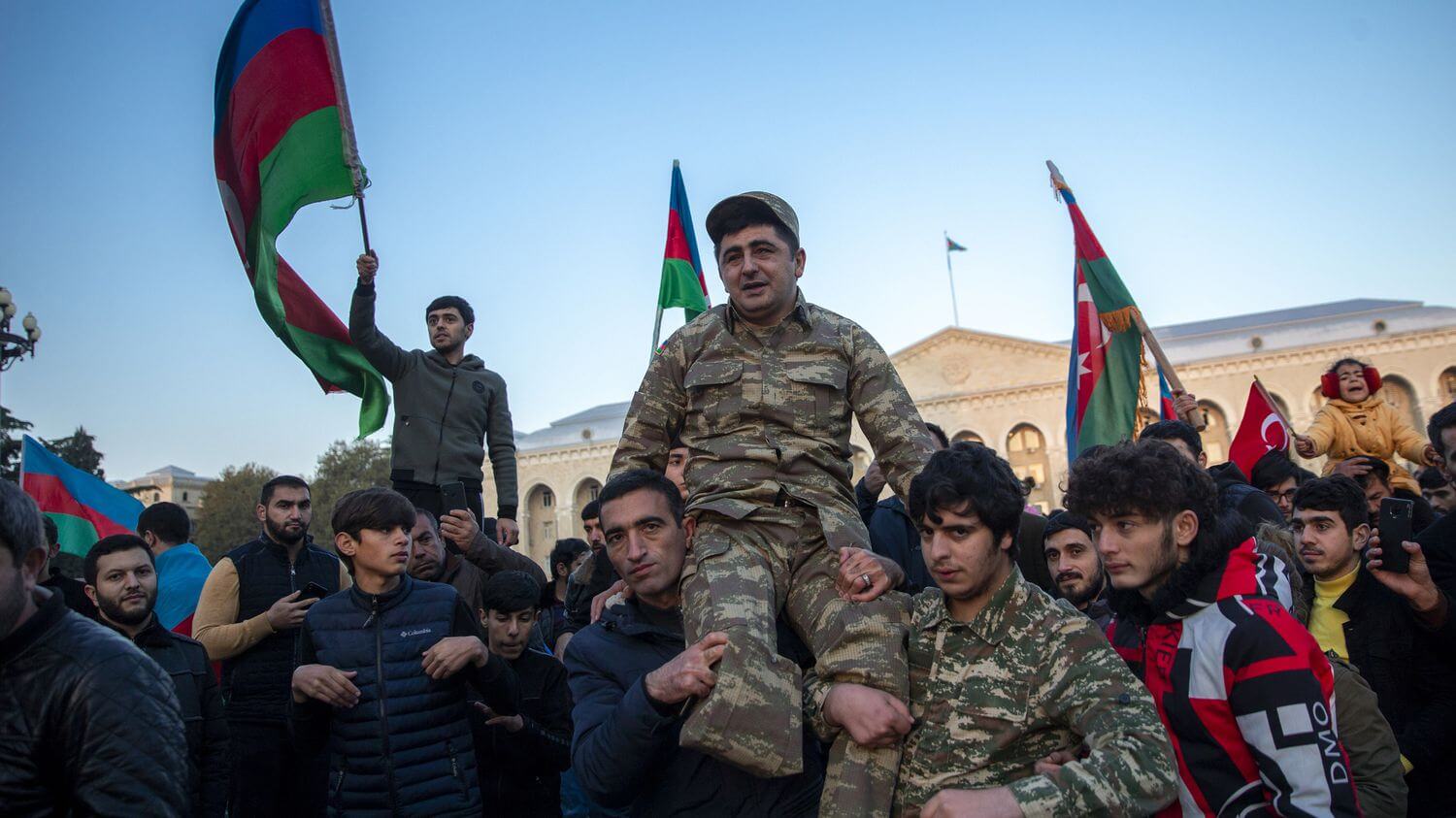After nearly six weeks of fierce fighting, Armenia, Azerbaijan, and Russia signed an agreement on Tuesday to end military conflict over the disputed enclave of Nagorno-Karabakh.
However, the deal received starkly contrasting reactions from the warring parties. While Azeri President Ilham Aliyev celebrated with his country, tweeting: “This is a historic day, an end is being put to the Armenia-Azerbaijan Nagorno-Karabakh conflict,” Armenian Prime Minister Nikol Pashinyan described the ceasefire as “unspeakably painful” in an emotional Facebook post. Shortly after the PM’s remarks, angry protestors took to the streets in Yerevan, calling the agreement a “betrayal”. Hundreds of people also stormed government buildings, demanding Pashinyan’s resignation.
The trilateral agreement came after ethnic Armenian officials in the disputed region confirmed that the key city of Shusha (known as Shushi in Armenia), the second-biggest city in the enclave, had been taken by Azeri forces. Azerbaijan also said on Monday it had taken dozens of more settlements. The deal requires both the Armenian and Azerbaijani armies to stop at their currently occupied positions. Armenia has also agreed to withdraw from several other adjacent areas over the next few weeks. Though widely being seen as a win for Azerbaijan against Armenia, Armenian PM Pashinyan said that he had made the difficult decision to agree to the ceasefire based on a “deep analysis of the military situation”. He said the deal was “the best solution in the situation”, and that while it was not a victory, it was certainly not a defeat.
The Armenian leader in Nagorno-Karabakh (also known as Artsakh), Arayik Harutyunyan, also stressed that the ceasefire was unavoidable due to significant battleground losses. “If the fighting had continued, we would have lost the whole of Artsakh within a few days,” he said in a video statement, referring to Nagorno-Karabakh. “And we would have had more victims”.
Armenia and Azerbaijan have been engaged in constant conflict over the disputed region since the fall of the Soviet Union. The war between ethnic Armenians and ethnic Azerbaijanis in the disputed territory lasted till around 1994, with both Baku and Yerevan continuing to hold claims over Nagorno-Karabakh. The situation worsened in the early 90s when the Autonomous Oblast of Nagorno-Karabakh voted to join Armenia, increasing violence and displacing thousands by 1992.
The violence was contained by a Russia-mediated ceasefire in 1994. After this, the independent enclave of Nagorno-Karabakh held a public referendum—that was boycotted by Azerbaijan—in which the people chose to be independent rather than joining either country. However, this has not deterred Azerbaijani and Armenian forces from engaging in frequent clashes at the bordering region, with the conflict reigniting in what is now known as the 2016 Four-Day War. In 2018, armed forces of both countries engaged in another violent clash at Gyunnut. The most recent flare-up occurred on September 27, and led to the worst clashes in decades, killing thousands and displacing more than 100,000 people.
Under the terms of the newly-signed agreement, the Russian defense ministry confirmed that 1,960 soldiers will be deployed to the frontline in Nagorno-Karabakh and in the corridor between the region and Armenia to act as peacekeepers for the next five years. Turkey will also take part in the peacekeeping process. The terms of transition, however, have not yet been made clear.
Though several previous attempts to end the conflict have failed, Russian Premier Vladimir Putin expressed optimism about the agreement, saying that it will “create the necessary conditions for a lasting and full-scale settlement of the crisis over Nagorno-Karabakh on a fair basis”, and that it was in the interests of both Azerbaijan and Armenia.

